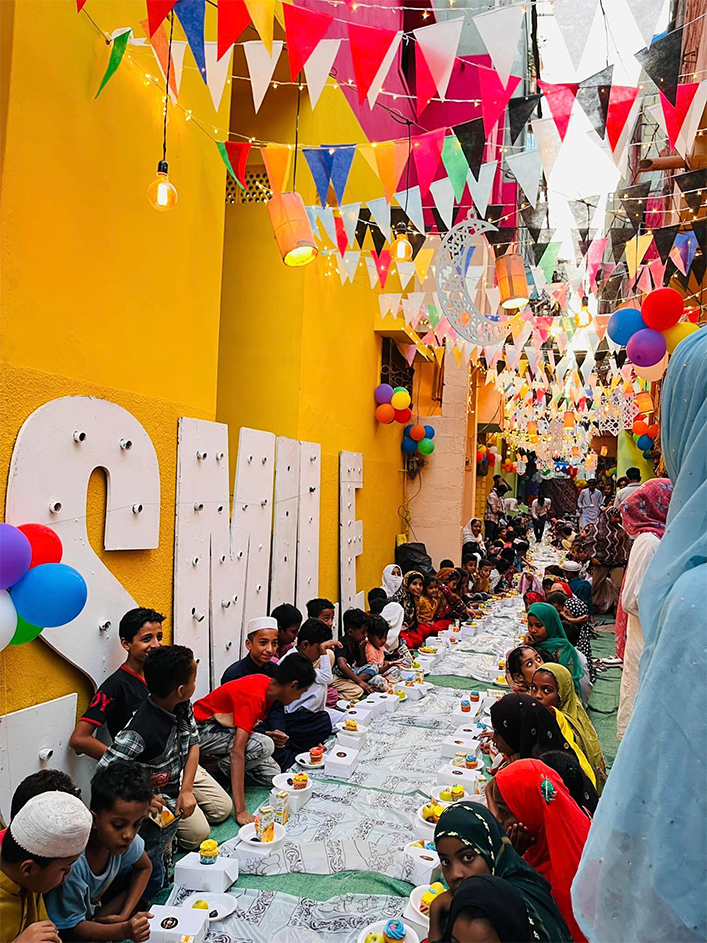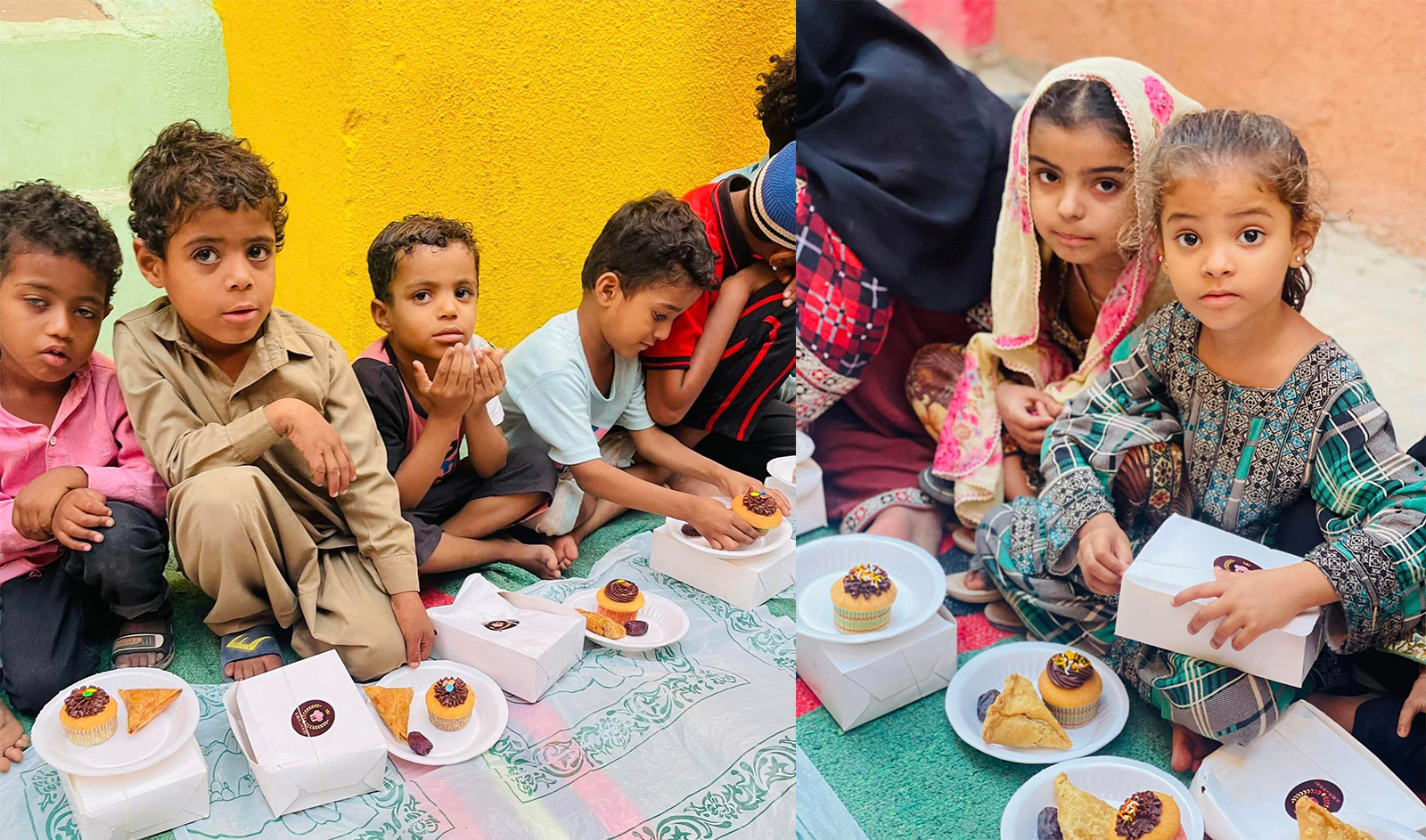KARACHI: With beaming smiles on their faces, around 300 children this week sat in long lines running down a narrow street festooned with lights, bunting and banners, waiting to enjoy a meal of biryani and rice pudding arranged by a local NGO.
Welcome to the communal children’s street iftar in Karachi’s impoverished, crime-ridden Lyari neighborhood, organized twice weekly by Faryal Kamran, who runs the Faryal Kamran Initiative, in collaboration with the Lyari-based welfare organizations, Dreams of Youth and the Kiran Foundation.
The iftar program, which takes place on what has come to be called ‘Dream Street,’ was launched last year in Lyari’s Block-C, and takes place every Tuesday and Thursday during Ramadan. Up to 300 children are invited, based on tokens distributed to households in the vicinity according to the number of children in each home, Kamran told Arab News.
Around a hundred of the kids also support Kamran and her team with the arrangements, blocking off the street near sunset and only letting children with tokens enter and settle on the dastarkhuwan, or floor spread.
“We used to see the conditions, that children here are deprived of so many things,” Kamran told Arab News on Thursday as she placed plates of dates on the dastarkhuwan.
“So, we came up with an idea that why don’t we set up an iftar on the road ... I wanted to spend some time with these kids and give them this festive feeling of Ramadan.”

The image posted on March 25, 2023, shows a street in Pakistan's Karachi’s Lyari neighborhood festooned with lights, bunting and banners as children await for breaking the fast. (Sabina Khatri/Facebook)
In Pakistan, evening street meals are widely organized by charities for the poor, while others, like the one in Lyari, are run by local communities which pool food donations.
Kamran too sought the help of other local organizations and volunteers to pull off the initiative, especially the task of decorating the streets.
“First of all, we painted [and] renovated the streets. We got them cleaned and then we put out the dastarkhwaan,” the charity worker said.
“The main purpose was to add colors, to bring happiness for the children for all of Ramadan. The lights and décor keep hanging here. So, whenever the kids walk by this street, they smile and Ramadan is memorable for them.”

The collage of images created on April 2, 2023, shows children posing for picture before iftar meal in Pakistan's Karachi’s Lyari neighborhood on March 28, 2023. (Sabina Khatri/Facebook)
This year, Kamran said, a number of confectionaries were supporting her project by providing gifts, biscuits and goodie bags for children.
“We have a different menu every day,” she said, which included burgers, cupcakes, rice and juices.
“We come here for iftar,” Unaisa Bibi, a 4th-grader, told Arab News on Thursday, as she ate a date as the Maghrib prayer, calling believers to break their fast, was broadcast over loudspeakers through the neighborhood. “We have rice, biryani, kheer [rice pudding], we have it with the kids.”
Nashra, a girl who only gave her first name and did not disclose her age, said she loved the program for giving her the opportunity to make new friends.
“I have come to play with friends. I really like it with my friends here,” she told Arab News.
Javeria Rauf, a high school student who helps to distribute the meals, said seeing the children happy filled her with gratitude.
“They [children] come here with full energy,” Rauf said. “They are excited about what is going to be in the meal today. They are full of hope … The colorful cupcakes, when the children see that, they are so happy.”
Sabeer Ahmed, the founder of the Dreams of Youth welfare society, also said the initiative helped spread happiness.
“We all are divided within Karachi, in different partitions. Dastarkhwaans like this bring everyone together irrespective of cast and color,” Ahmed said. “It’s not just the kids, their families are also involved in this with them. This is the dastarkhwaan where we spread happiness and tell everyone to come together.”
Next year, Kamran hopes she can spread the “sense of belonging” to other neighborhoods also.
“We are thinking of expanding to more streets right now,” she said. “Get them painted, renovated and make them as colorful as possible.”















